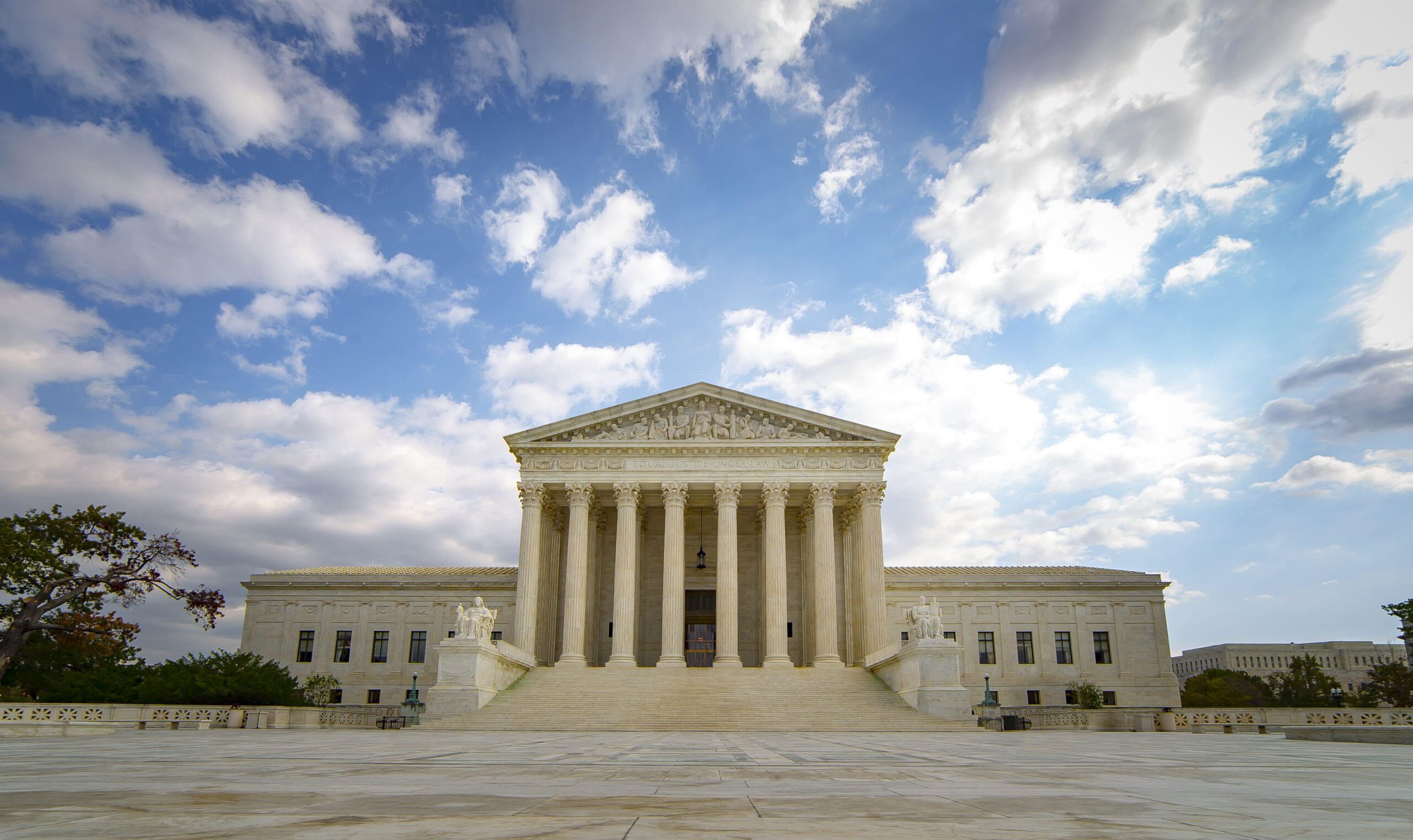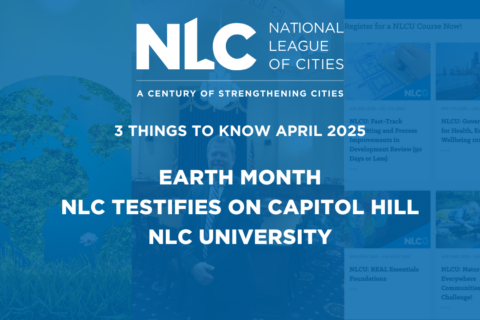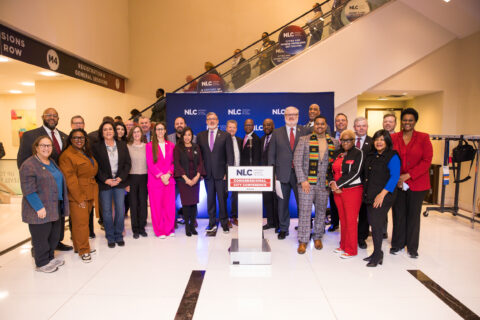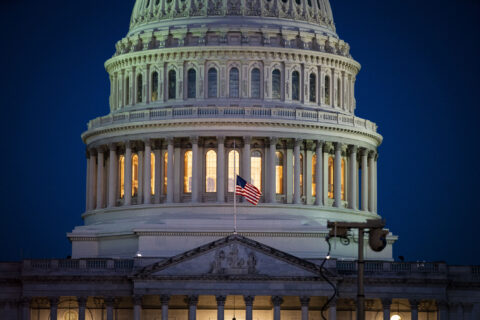Cities, counties, and states across the United States have brought at least a dozen lawsuits against major oil and gas companies claiming they knew for decades their products caused climate change but denied or downplayed the threat. These lawsuits have been brought under state common law (including public and private nuisance, trespass, negligence, design defect, and failure to warn). The suits seek damages or compensation for current and future costs associated with climate change. NLC has filed amicus briefs in six of the cases, including B.P. v. Mayor and City Council of Baltimore.
The issue in B.P. v. Mayor and City Council of Baltimore is whether a federal appellate court may review all the grounds upon which a defendant claims its case should not be sent back to state court when only one of the grounds the defendant alleges is specifically listed in the federal statute as a basis for federal appellate court review. The State and Local Legal Center (SLLC) filed a Supreme Court amicus brief arguing that federalism supports limiting federal appellate court review.
The mayor and City of Baltimore sued 26 oil and gas companies in Maryland state court claiming their role in climate change has violated Maryland law.
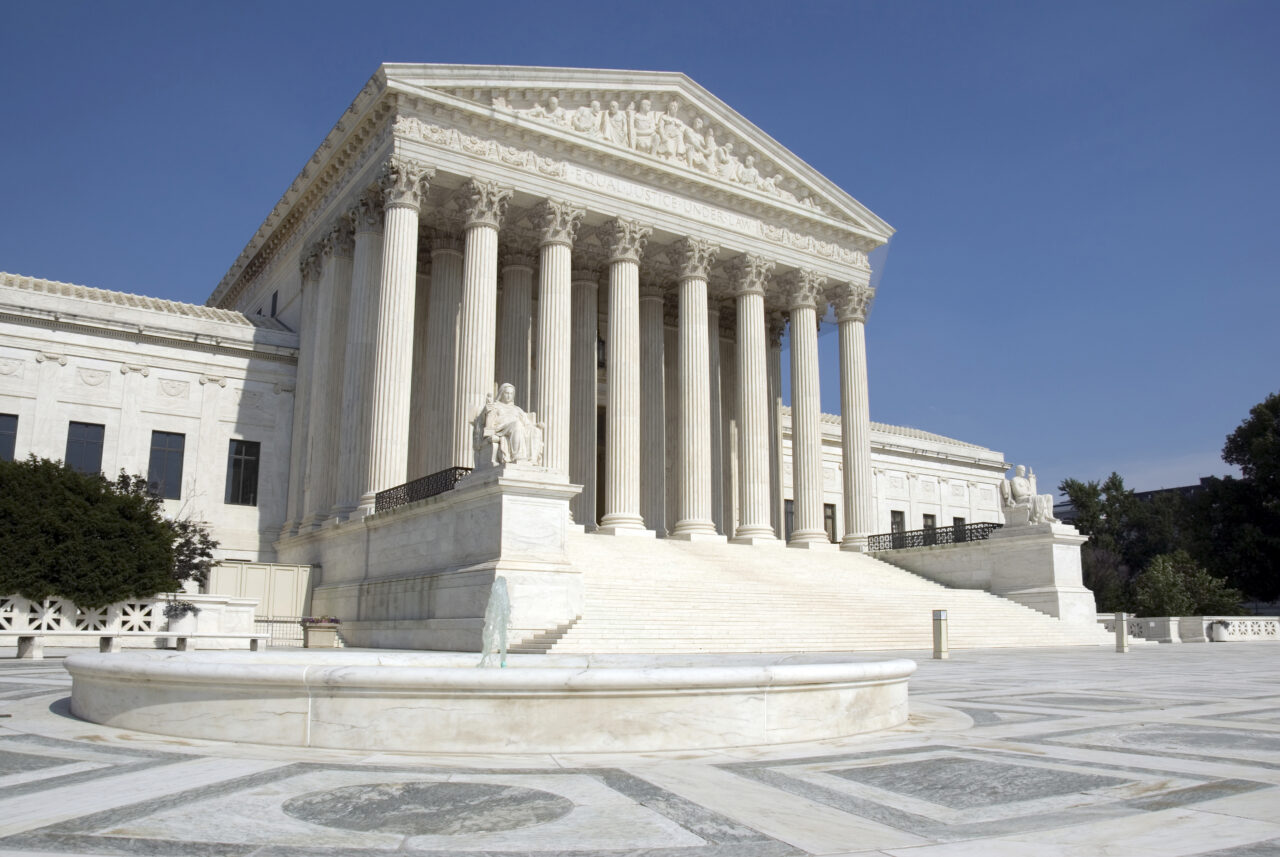
Federal law allows defendants to “remove” a case brought in state court into federal court if the federal court has jurisdiction over the case. BP claims that the federal court has jurisdiction to hear this case on eight grounds, including the federal officer removal statute. This statute allows federal courts to hear cases involving a private defendant who can show that it “acted under” a federal officer, has a “colorable federal defense,” and that the “charged conduct was carried out for [or] in relation to the asserted official authority.”
The federal district court rejected all eight grounds BP alleged supported removing this case to federal court. The federal district court remanded the case back to Maryland state court.
28 U.S.C. §1447(d) generally disallows federal courts of appeals to review federal district court orders remanding a case back to state court which was removed to federal court. The statute creates an exception for reviewing “an order remanding a case to the State court for which it was removed pursuant to” the federal officer removal statute or the civil-rights removal statute (not at issue in this case).
BP asked the Fourth Circuit to review all eight of its grounds for removing the case to federal court because one of the grounds it alleged–federal officer removal–is an exception allowing federal appellate court review.
The Fourth Circuit refused to review all eight grounds. It cited to a Fourth Circuit case decided in 1976, Noel v. McCain, holding that “when a case is removed on several grounds, appellate courts lack jurisdiction to review any ground other than the one specifically exempted from §1447(d)’s bar on review.”
The SLLC amicus brief argues that “[s]tatutory text, congressional ratification of preexisting interpretations, legislative intent, and the principles animating our federalist system all . . . support affirmance of the Fourth Circuit’s decision in this case.” More specifically, the brief argues that “[r]espect for state sovereignty requires that the historic relationship between state and federal courts in the administration of justice continue unimpaired so that state courts may try state cases free from federal court interruption.”
While the issue in this case has been raised in other climate change cases pending in the lower courts, of which NLC is participating in several similar cases, it is not unique to climate change litigation.
Robert S. Peck, Center for Constitutional Litigation, wrote the SLLC amicus brief which the following organizations joined: National Conference of State Legislatures, Council of State Governments, National Association of Counties, National League of Cities, US Conference of Mayors, International City/County Management Association, and International Municipal Lawyers Association.
